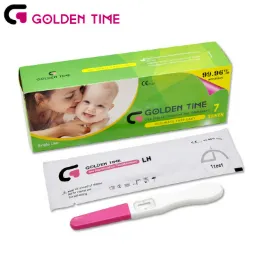Jun . 03, 2025 16:38 Back to list
The Impact of Malaria Kits on Healthcare Workload
Malaria, a life-threatening mosquito-borne disease, continues to pose a significant challenge to global healthcare systems. Each year, millions of cases are reported, straining medical resources. Malaria kits, especially malaria antigen test kits and malaria antigen kits, have become essential weapons in the fight against this disease. Their widespread adoption has brought about both positive and negative impacts on healthcare workloads, reshaping the way malaria is diagnosed and managed.

Rapid Diagnosis with Malaria Antigen Test Kits
Malaria antigen test kits have revolutionized the diagnostic process. In traditional healthcare settings, diagnosing malaria relied on microscopy, which demanded skilled technicians and hours of painstaking examination of blood smears. In contrast, malaria antigen test kits can deliver accurate results within 15 - 20 minutes. For example, in a busy clinic in a malaria-endemic region, these kits enable healthcare providers to test and diagnose dozens of patients each day, clearing the backlog of suspected cases rapidly. This efficiency allows medical staff to allocate more time to treatment planning and patient care, significantly reducing the diagnostic workload.
Simplified Testing via Malaria Antigen Kits
Malaria antigen kits simplify the testing process, making malaria detection accessible across various healthcare environments. These kits are designed to identify specific malaria antigens in patient samples with ease, without the need for sophisticated laboratory equipment. In remote villages or mobile health units, non-medical personnel, such as trained community health workers, can use malaria antigen kits to screen individuals for malaria. This decentralization of testing not only increases access to diagnosis but also redistributes the workload from central laboratories to local settings. As a result, larger healthcare facilities can focus on more complex cases, while local communities gain the ability to manage malaria testing independently.
Training Burdens of Malaria Kits
Despite their benefits, malaria kits introduce additional training requirements that impact healthcare workloads. When new malaria antigen test kits and malaria antigen kits are introduced, healthcare staff, including doctors, nurses, and support personnel, must undergo comprehensive training. This training covers proper sample collection, accurate kit operation, and correct result interpretation. Failure to use the kits correctly can lead to false positives or negatives, necessitating retesting and additional patient follow-up. The time and resources spent on training programs, along with the need for ongoing supervision, add to the overall workload of healthcare facilities, especially in regions with limited educational resources.
Storage Complexities of Malaria Kits
Maintaining the integrity of malaria kits also contributes to the workload in healthcare settings. Malaria antigen test kits and malaria antigen kits often have specific storage requirements. Many need to be stored in cool, dry places, with some kits requiring strict temperature control between 2 - 30°C. In tropical regions with high humidity and fluctuating temperatures, ensuring proper storage conditions demands constant monitoring. Additionally, managing kit inventory, tracking expiration dates, and preventing damage during transportation are crucial tasks. Any oversight in storage can render the kits ineffective, leading to inaccurate results and increased workload due to retesting.
Malaria Kits FAQs
How accurate are malaria antigen test kits?
Malaria antigen test kits offer high accuracy when used correctly. However, factors such as improper storage, expired kits, or incorrect handling can affect their performance. Regular quality control checks and adherence to usage guidelines help maintain reliable results.
Can non-experts use malaria antigen kits?
Yes, malaria antigen kits are designed for user-friendliness. With basic training, non-experts, including community health volunteers, can effectively use these kits to conduct malaria tests. Their simplicity makes them suitable for a wide range of users in various healthcare settings.
What are the common issues with malaria kits?
Common issues with malaria kits include false results due to improper usage, degradation of kits caused by inappropriate storage, and difficulties in interpreting results, especially in cases with low parasite levels. Ensuring proper training and storage conditions can mitigate these problems.
How often should malaria kits be restocked?
The restocking frequency of malaria kits depends on the prevalence of malaria in the area and the volume of testing. Healthcare facilities should regularly assess their kit usage and maintain an adequate stock to avoid shortages and disruptions in malaria diagnosis.
Why choose our company's malaria kits?
Our company's malaria kits, malaria antigen test kits, and malaria antigen kits are crafted with precision and undergo stringent quality assurance processes. They offer superior accuracy, long shelf lives, and user-friendly interfaces. By choosing our products, you can optimize your healthcare operations, reduce workload, and improve patient outcomes.
If you're looking for high-quality malaria kits that combine reliability, accuracy, and ease of use, our company is your ideal partner. Our malaria antigen test kits and malaria antigen kits are trusted by healthcare professionals worldwide. Contact us today to place an order and experience the difference our products can make in enhancing your healthcare services!

